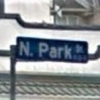[url=http://www.canada.com/victoriatimescolonist/news/capital_van_isl/story.html?id=1ea2c84d-a365-4593-ac34-58a0606c64e6:8b1f5]Kim Westad, Times Colonist, August 4, 2007[/url:8b1f5]
The organic produce you pick up at a local farmer's market might have been grown in your neighbour's front garden.
Dozens of people have offered up their land to an Oak Bay couple who practise urban farming on residential land usually filled with ornamental flowers and shrubs. It's the first business of its type in B.C., and is modelled after a similar urban agriculture project in Saskatoon.
But Paula Sobie and Martin Scaia have run into an unusual problem in their own municipality: An Oak Bay bylaw bans growing plants for sale.
It was introduced in 2001 after waterfront Beach Drive estate "Riffington" was given farm status because owner Annabeth Black sold more than $2,500 of the plants annually.
Farm status meant the taxes of the estate at 3175 Beach Dr., were slashed. So Oak Bay tightened up its definition of agriculture to deal with the problem. But that's created a bit of an issue for Sobie and Scaia, whose City Harvest business sells the organic vegetables and produce grown on urban land at several markets. "We understand why the bylaw is there but we hope it can be changed," Sobie said yesterday.
She learned of the bylaw after planting several gardens in Oak Bay with vegetables. There was no complaint, and Oak Bay doesn't plan to have the gardens uprooted. Sobie simply stumbled on the bylaw when she did some checking of her own after a few people asked whether they were allowed to have their front garden as a vegetable patch.
Coun. Nils Jensen plans to bring it forward at council's next meeting later this month. "We'd have to tweak the bylaw to permit this kind of smaller, more focused approach," said Jensen, who supports the City Harvest approach to farming.
Sobie and Scaia, the parents of two young children, wanted to create work that allowed them time with their family and also helped them put their beliefs about sustainable living into practice.
They started City Harvest in February, advertising on the Internet for people who wanted to use all or part of their city property for an urban garden. In return, the homeowner receives a portion of the organic vegetables, while the couple sells the rest at markets, to restaurants and through the Small Potatoes Urban Delivery (SPUD) program.
The couple has no interest in farm status for their home, and neither do the owners of the dozen properties where they have urban gardens planted, they said. ...





















